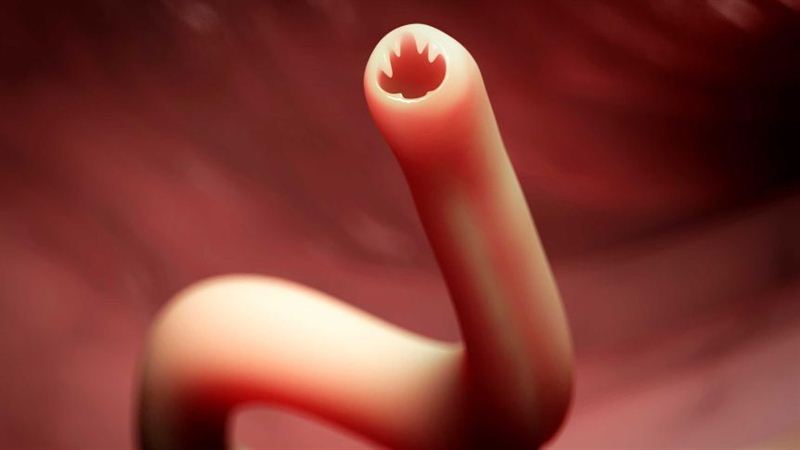Parasitic Infections Are Very Common In Semi Urban Areas Among Children

Parasites Infections are very Common in Children
Parasite infections are very common in children of all ages. The Parasitic infections cause when a small animal stays in or on another organism and also depends on that organism for their nourishment and survival. Parasites may be fleas, lice and worms. Infections through protozoa, helminths, and arthropods all are included under parasitic infections. The diseases caused by parasites are diarrhoea, malaria, intestinal infections and also the deficiencies of nutrients as these excrete before absorption. It may also cause mortality or morbidity in child’s generally in underdeveloped areas with unsanitary living conditions. Parasite infection is called Disease of Poverty and the children living in the low-income group are more prone to parasite infections because of their lifestyles, poor sanitation, bare feet, overcrowding housings, malnutrition, unclean drinking water or inaccessibility of proper health checkups.
The common parasite infections in children’s are discussed below:
- Giardiasis: It is caused by polluted or unsafe water which leads to diarrhoea, cramping, bloating, nausea and weight loss which is spread through faeces contamination, food or close contact of infected persons.
- Head Lice or Scabies: Both the parasite infections are spread through close contact of one person to another. They cause itching of the skin.
- Cryptosporidiosis: It occurs as a result of swallowing contaminated water of swimming pool, fountains, lakes, rivers and streams etc.
- Toxoplasmosis: It is dispersed through ingestion of soil or litter contaminated with faeces of a cat.
- Strongyloidiasis: It develops when larvae of worms from soil contaminated with infected faeces of humans and introduced into the skin.
- Toxocariasis: It is caused when soil contaminated with faeces of cat and dog which contain larvae of worms and it penetrates to children by walking bare feet.
- Malaria: It is a mosquito-borne infection and it spread through female anopheles mosquito when this mosquito bites it transfers the malaria parasite to the blood of the person and from there it is transferred to the liver for maturation and reproduction. Generally, there are four malaria parasites, Plasmodium falciparum, P.vivax, P.ovale and P.malariae. It is spread from an infected person to other healthy persons.
- Soil-transmitted helminth disease: The infections caused by roundworm, hookworm, whipworms are under this category. The eggs of worms from the soil contaminated with human feces and spread to children when walking bare feet and introduced into the skin. It shows the symptoms like diarrhoea, pain abdomen, obstruction of the intestine, anemia, growth retardation and impaired brain development.
- Schistosomiasis: It is a parasitic disease and spread through helminths which spend there, half life cycle in snail and the half they enter into the human body when the humans come in contact with water where snails live and the leads to growth retardation and other health problems.
- Onchocerciasis: It is spread by blackfly which reproduces near flowing water and its bite leads to impaired vision and blindness.
- Lymphatic Filariasis: It is caused by a bite of the mosquito and it harms the lymphatic system of children. Sometimes it shows symptoms like swollen legs, hands and fluids in a scrotum at later stages of puberty.
- Ascariasis: It is a roundworm infection and child gets affected with hundreds of worms and then produces symptoms.
- Amebiasis: When amoeba a parasite enters into the child’s body and starts to multiply. Always symptoms are not mandatory but sometimes it results to fever, diarrhoea, weight loss and jaundice.
- Tapeworms: It is dispersed through food and water contamination. The larvae when entered into the intestine of children they start to form the cyst and also develop into and leads to diarrhoea, nausea, stomach cramping and dehydration.
- Pinworms: It enters into the rectum and lays eggs into the surrounding rectal skin at night. It causes itchiness of anus and disturbs sleep. It does not cause disease but very uncomfortable.
Prevention: The only way to prevent parasite infections is proper sanitation and hygiene.
- Ask children to wash hands regularly with soaps or handwash before and after eating, after using toilets and coming from the outsiders.
- Tell them not to walk or play bare foot
- Dispose faeces properly with a proper sewage system
- Use mosquito repellents and nets. Wear covered clothes which protects from mosquito bites.
- Avoid drinking unclean water. Drink filtered water or boiled water.
- Avoid swallowing water on pools, streams and lakes while swimming.
- Clean child’s toys with disinfectants and keep their bed-sheets and room clean.
Finally, The parasites impair child’s immune system by stealing energy and thus there is not proper brain development during childhood due to the crisis of energy. So if the child suffers from continuous diarrhoea, nausea, dehydration, stomach cramps or weight loss then may be these are the symptoms of parasite infections. So consult a doctor for the treatment.









